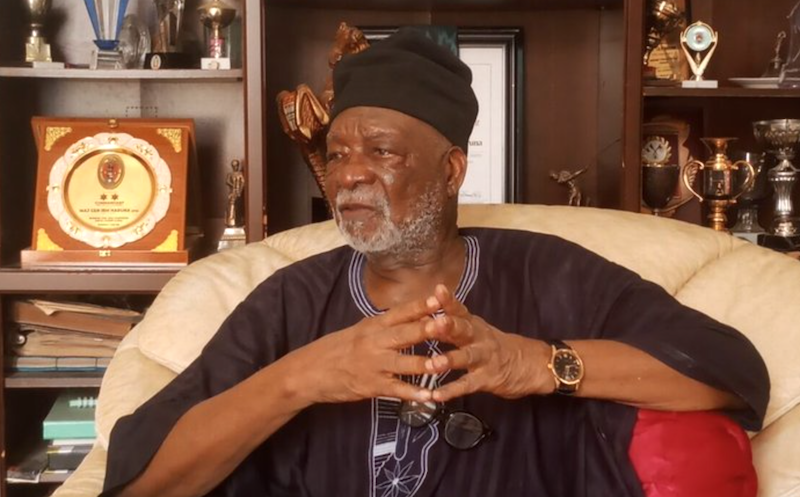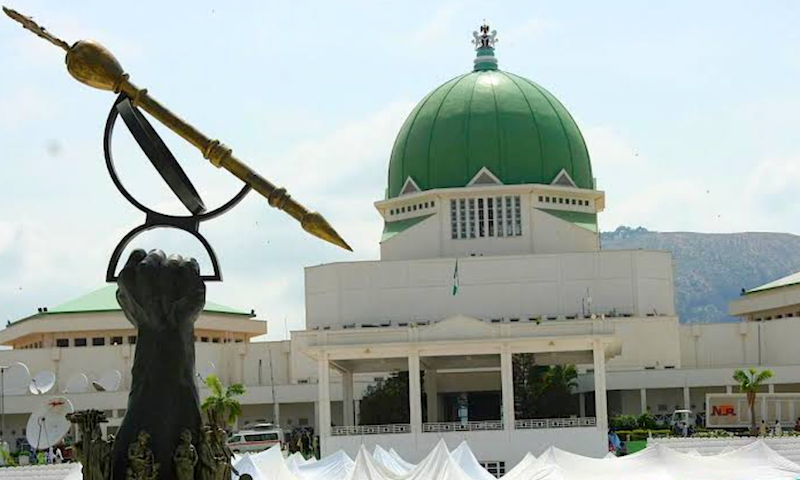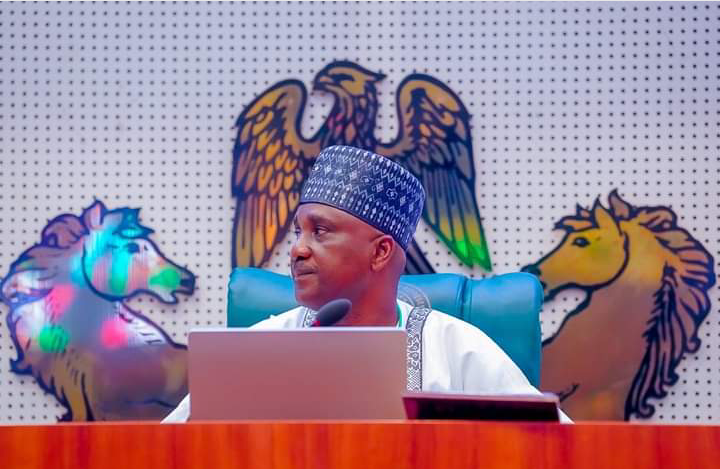Former Chairman of the National Institute for Policy and Strategic Studies (NIPSS), Retired Maj.-Gen. IBM Haruna has said that Nigeria’s problem is not solely about the 1999 Constitution.
Haruna, who was also a member of the Constitutional Conference between 1988 and 1989, stated this in an interview with NAN on Sunday in Abuja.
He said that the problems confronting the country were not necessarily created by the constitution ‘enacted or decreed in 1999’.
The retired military officer, who was a member of the 1994 National Constitutional Conference Commission, said while the constitution was not perfect, it, however, made provisions for addressing the current challenges.
Among the provisions, he said, was the principle of separation of powers among the three organs of government.
“The problems that face us fundamentally and constitutionally are just evolving,” he said.
Haruna cited the current Nigerian population which he put at over 200, with about 400 ethnic groups, among which are the dominant ones and the minorities.
According to him,`they are all seeking for their rightful place and constitutionally-stipulated roles within the Federal Republic.
“But through processes and growth as well as the progressive development of social, political and economic processes, we will make changes; therefore, the constitution is not static.
“However, certain fundamentals have been provided for it in the structure, the independence of the judiciary, the separation of powers and things like that.
“Each one has to play its role as conceived and provided for within the constitution and the laws of the federation,’’ he said.
Haruna, however, said that irrespective of the numerous challenges, Nigerians should prioritise what they want and how to go about it.
“We’ve decided on federalism; this is imperfect. We’ve decided on electoral bodies and the laws that govern them. The performance and implementation of the electoral law is also not perfect.
“We’ve equally decided on certain instrumentality of modern mechanisms or equipment for use during elections. It is all toward providing or making sure that elections are free, fair and dependable.
“But we know, from where we started, that ballot boxes were being snatched, and we have also experimented Option A4, with people queueing behind their candidates,’’ he said.
Haruna said there was no guarantee that those systems would not be faulted, particularly in an atmosphere where corruption and cheating prevailed.
The retired general said while there was no commitment to perfecting the procedures and processes, there could be guarantee that the rule of law and regulations would be followed.
He expressed concerns about the challenges being faced by some institutions in the country, including the Independent National Electoral Commission (INEC), the judiciary and political parties.
He avered that the situation could have been better if those institutions could be put in proper shape.
“Of course we see how elections in other places and countries are being carried out and the time during which results are announced.
“Take India, for example, with over a billion population; they are able to conduct elections and announce the results within the specified time,’’ he said.
According to him, the perfection of the forces and institutions starts with the people, including those expected to review the constitution.
“The people make the party; the people make the election; the people do the transactions that amount to corruption or defiling the election results.
“So, we ourselves, as a people, have to begin to change our perceptions,” he said.
Haruna called on Nigerians to do away with ethnic and personality biases, snatching of ballot boxes during elections and disefranchising in certain areas.
“Basically, we, the people who will enact the constitution, also have to sanitise ourselves,’’ he said.
How sustainable security can be achieved in Nigeria – IBM Haruna
Speaking further, IBM Haruna said that achieving sustainable security in Nigeria requires societal reforms and implementation of programmes that promote citizens’ welfare.
He urged governments at all levels to implement programmes that would enhance citizens’ welfare as a means of tackling insecurity in the country.
Haruna said that even though the security challenge was not peculiar to Nigeria, providing security is one of the constitutional roles of any government.
He said that government needed a secure environment to plan and implement programmes that would engender development.
“The welfare and security of the people, as stated in our constitution, is the primary purpose of the government.
“There is no government, even the powerful ones, America, the China, Europe and so on, that are not faced with insecurity.
“Our level of insecurity is not really strategic. It is domestic. It is like peace-keeping and enforcing law and order,” he said.
According to the retired general, while insecurity remains a continuous challenge, government must continue to execute programmes that best promote people’s welfare, especially the youth, spreading over short, medium and long terms.
“Security is a continuous challenge, no matter your strategic position as a nation or your progress in finding stable democracy.
“They must go together with the welfare, the economy, the upbringing of the youth in the present term, in the middle term, and in the long term as well as the preservation of the sovereignty of the state.
“Fundamentally, you must have a firm ground upon which you can plan,” he said.
On whether the military was doing enough to address insecurity in the country, Haruna stated that without addressing the root causes of insecurity through social development and unity, the efforts of the military alone would not be sufficient.
He outlined the continuous need for national reorientation, commitment and patriotism, not just to address insecurity but to also foster unity in diversity and democratic governance in the country.
The civil war veteran added that the desire for democracy, political stability, economic and social progress should be firmly rooted in the electorate.
“I cannot speak for the military as it is today, but their performances speak for themselves.
“If we talk about today’s military, I think that the situation has finally put to rest the ambition of the military to take over government.
“I think the desire for democracy, political stability and economic and social progress is firmly entrenched in our now better enlightened electorate.
“The process of reorientation and commitment and patriotism to the Nigerian nation is a continuous challenge.
“So, we have to seek for that unity in diversity where we accept, practise and employ the standards of ethics for the nation as a whole,” he said.
Haruna called for the building of social and economic standards as well as application of ethics and morals to address corruption in the system.
Reforms: Be patient with Tinubu, IBM Haruna urges Nigerians
Also, IBM Haruna, urged Nigerians to be more patient with the President Bola Tinubu administration on its various programmes and polices, saying that it has good intentions.
Haruna said while the administration had its objectives and intentions for various reforms and policies, certain factors, not peculiar to only Nigeria, had contributed to the present realities.
He acknowledged the significant shifts in Nigeria’s socio-economic landscape and the policy reforms of the present administration, including the removal of fuel subsidy.
The retired general noted that both the government and the citizens had been adjusting to new realities.
“The world itself does not stand still. The dominance of the Americans, the Chinese, the Russians are changing because of new organisations like BRICS.
BRICS is an inter-governmental organisation comprising 10 countries – Brazil, Russia, India, China, South Africa, Egypt, Ethiopia, Indonesia, Iran and the United Arab Emirates.
On whether the coalition of political leaders on the platform of African Democratic Congress (ADC) could unseat Tinubu in 2027, Haruna said what was more important to Nigerians were credible elections and good governance.
“I must confess, I don’t know them. I read about what is reported of them. I am not in their cohorts. I am not in politics.
“We comment on the development as to how it affects the country. The politicians know their objectives, they know where they are going.
“ But we know where we want them to go, to evolve a democratic, trustworthy, reliable government and system.
“That is to say, we should have an election process and result that can be trusted and the confidence that can be reposed in its results,’’ he said.
Haruna, who was once the chairman of Arewa Consultative Forum (ACF), said that the organisation still remained committed to its objectives, which had not changed.
“ACF is a social, non-partisan, apolitical organisation for ensuring that the North maintains its relevance, its cohesion and its peaceful arrangement of evolving the Nigerian state.
“I believe it is still so. Since I was the chairman until 2011. We are part of the mosaic in building the country without being political operatives,’’ he said.
The retired general said that virtually all the politicians from the North were aware of the concerted efforts at enhancing security in the North and ensuring fair participation in the political arrangements in the country.




